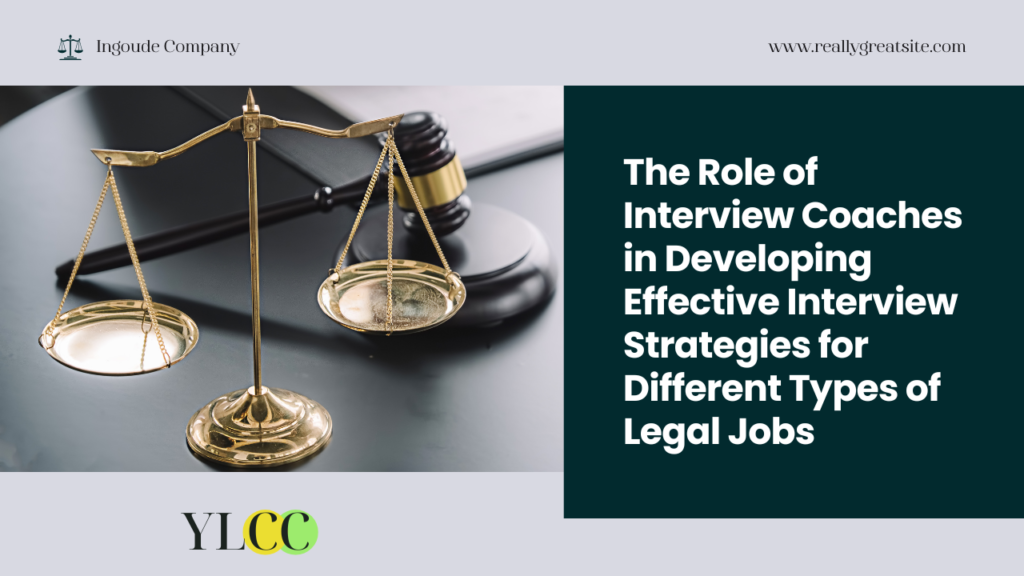
Are you ready to soar through your next job interview with ease and confidence? The legal industry can be a wild and woolly world, full of complex rules, regulations, and jargon. But fear not, because interview coaches are here to help you navigate the choppy legal waters and develop effective interview strategies that will knock your interviewer’s socks off!
Whether you’re vying for a litigation attorney position, an in-house counsel role, or a compliance officer gig, interview coaches can help you prepare for the unique challenges of each job. They can teach you how to research the company and the role, practice common interview questions, and develop a compelling narrative that showcases your legal prowess.
So buckle up, put on your best legal briefs, and get ready to ace your next job interview with the help of an interview coach. With their guidance, you’ll be able to tackle any legal job interview with confidence, poise, and a little bit of swagger. Let’s get started!
Customized Coaching for Different Types of Legal Jobs
Just like how different superheroes have unique powers, different types of legal jobs require specific skills and knowledge. A good interview coach will tailor their coaching approach to fit the unique needs of each client. Whether you’re applying for a corporate law position or a public interest law job, a skilled coach can help you develop interview strategies that will highlight your strengths and demonstrate your knowledge of the industry.
Confidence-Boosting Techniques
The legal field can be intimidating, and job interviews can be nerve-wracking. A good interview coach can help you develop confidence-boosting techniques that will help you project professionalism and charisma in your interviews. It’s like having a magic potion that transforms you into a confident and charming legal professional!
Mock Interview Practice
Practice makes perfect, and that’s especially true when it comes to job interviews. A skilled interview coach will conduct mock interviews with their clients, providing valuable feedback and guidance on how to improve their performance. It’s like having a dress rehearsal before the big show – you’ll be prepared and confident when it’s time to face the real interview.
Developing Effective Interview Strategies for Different Types of Legal Jobs
Key Competencies for Legal Professionals
To succeed in job interviews, legal professionals must possess several key competencies. Interview coaching can help them to develop and showcase these competencies in job interviews.
- Legal Knowledge – It’s important for legal professionals to have in-depth knowledge of their area of law. Interview coaches can help them to prepare for questions related to their legal knowledge by conducting mock interviews that cover specific legal scenarios.
- Analytical Thinking – Legal professionals must be able to analyze complex legal issues and come up with creative solutions. Interview coaches can help them to develop analytical thinking skills by providing practice scenarios and asking them to provide a well-reasoned analysis.
- Communication Skills – Legal professionals must be able to communicate effectively with clients, judges, and other stakeholders. Interview coaches can help them to improve their communication skills by providing feedback on their body language, tone of voice, and choice of words.
- Teamwork – Legal professionals must be able to work collaboratively with colleagues and clients. Interview coaches can help them to showcase their teamwork skills by asking them to describe their experiences working on team projects and how they contributed to the team’s success.
- Problem-Solving Abilities – Legal professionals must be able to think critically and come up with solutions to complex legal problems. Interview coaches can help them to develop problem-solving abilities by providing practice scenarios that require them to analyze legal issues and come up with creative solutions.
Examples of how interview coaching can help legal professionals to develop and showcase these competencies in job interviews include providing targeted feedback on their legal knowledge, body language, and communication skills. Coaches can also provide guidance on how to highlight their teamwork and problem-solving abilities during job interviews.
Interview coaches can also help legal professionals to prepare for common interview questions and scenarios. For example, coaches can provide guidance on how to answer questions related to career goals, strengths and weaknesses, and why they’re interested in a particular job. Coaches can also provide practice scenarios that cover common legal issues and ask candidates to provide a well-reasoned analysis.
By working with an interview coach, legal professionals can develop the key competencies they need to succeed in job interviews and stand out from the competition. With the right preparation and guidance, they can feel confident and prepared to showcase their skills and experience to potential employers.
The Role of Soft Skills in Legal Job Interviews
In addition to legal knowledge and technical competencies, soft skills are increasingly important for legal professionals to succeed in job interviews. In fact, many law firms and legal employers now consider soft skills as a crucial factor in their hiring decisions. Let’s dive into why soft skills are so important and how interview coaching can help legal professionals develop and showcase them in job interviews.
The Importance of Soft Skills in Legal Job Interviews
- Soft skills are critical for building rapport and trust with clients and colleagues
- Soft skills help legal professionals to communicate effectively, persuade, and negotiate
- Soft skills enable legal professionals to adapt to changing circumstances and collaborate with diverse teams
- Soft skills are essential for leadership and management roles within legal organizations
Developing and Showcasing Soft Skills with Interview Coaching
- Emotional Intelligence: Interview coaches can help legal professionals to identify and manage their emotions during the interview process, respond empathetically to interviewers, and demonstrate their ability to understand and connect with clients.
- Adaptability: Interview coaches can help legal professionals to showcase their ability to adapt to different legal situations, communicate effectively with different audiences, and be flexible in their approach to problem-solving.
- Leadership: Interview coaches can help legal professionals to demonstrate their leadership potential by discussing their experience managing teams, supervising junior lawyers, and contributing to the success of legal organizations.
- Empathy: Interview coaches can help legal professionals to showcase their empathy by discussing their experience working with clients, demonstrating their understanding of client needs, and providing examples of how they have supported clients during challenging legal situations.
Preparing for Questions on Soft Skills with Interview Coaching
- Interview coaches can help legal professionals to prepare for common interview questions related to soft skills, such as “Can you give an example of a time when you had to work with a difficult client?” or “How do you handle conflicts with colleagues?”
- Interview coaches can provide guidance on how to structure responses to soft skills questions, emphasizing the importance of specific examples and outcomes.
- Interview coaches can help legal professionals to develop a repertoire of stories that demonstrate their soft skills, which they can draw on during the interview process.
Conclusion
Congratulations! You’ve made it to the end of our article on the importance of interview coaching for legal professionals. Let’s quickly recap what we’ve covered so far.
We discussed the challenges that legal professionals face in job interviews, including competition, high stakes, and complex legal issues. We explained how interview coaching can help legal professionals to develop effective interview strategies and stand out from the competition.
We provided examples of successful interview coaching strategies for different types of legal jobs, including law firm associates, government attorneys, and in-house counsel. We also discussed the key competencies and soft skills that are essential for legal professionals to succeed in job interviews, and how interview coaching can help them to develop and showcase these skills.
Now, as you embark on your journey to becoming a master of legal job interviews, we offer some final insights and recommendations. First and foremost, remember to approach every interview with confidence and a positive attitude. You’ve got this!
Secondly, seek out the help of an interview coach who can provide you with
personalized guidance and feedback on your interview skills. Interview coaching can help you to identify areas for improvement and develop effective strategies that will make you stand out from the competition.
Finally, don’t forget to prepare for common interview questions and scenarios. Research the company and its culture, practice your responses to common questions, and think about how you can showcase your unique skills and experiences.
With the help of effective interview coaching and a bit of preparation, you can nail your legal job interviews and land your dream job. Good luck!
YLCC would like to thank Pearl Narang for her contribution to this article.






